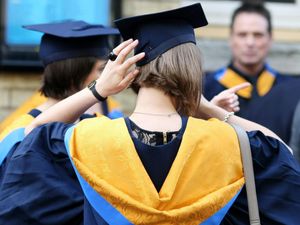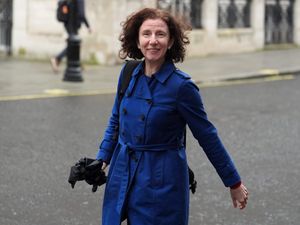Universities reduce face-to-face lessons on campus amid Covid-19 concerns
Two institutions in Liverpool have decided to increase the number of online seminars and tutorials.

Universities in Liverpool have reduced the number of face-to-face lessons on campus amid coronavirus concerns.
Students arriving at Liverpool Hope University this weekend – who do not require the use of specialist teaching spaces – will see seminars and tutorials move online following social distancing restrictions in the region.
Liverpool John Moores University has also decided to move the majority of face-to-face teaching online when term begins next week.
The decision came as local University and College Union (UCU) branches demanded a guarantee that vulnerable staff would not be forced to come on to university campuses across the city.
Martyn Moss, UCU regional official, had called on the universities in Liverpool to “halt unnecessary in-person teaching” to ensure the safety of staff, students and the local community was prioritised.
It came after the University of Liverpool confirmed there were already 87 confirmed cases of Covid-19 among students and staff on campus in the week before the autumn term began.
Liverpool Hope University, which had planned to offer a mix of virtual and face-to-face learning for all students, has moved all teaching online for induction week following concerns from residents about an influx of students.
In-person tutorials and seminars will be reduced for four weeks for undergraduates who do not require the use of workshops, laboratories and studios as part of the temporary measures.
The university is also requiring all students to sign a declaration binding them to a range of commitments, including not organising or attending parties on or off campus.
Dr Penny Haughan, pro vice-chancellor for student life and learning, said: “We want students to have the best possible experience of their time at Hope, and we’re committed to providing face-to-face teaching wherever and whenever it is appropriate.
“But we must also listen to the concerns of residents in the city and take heed of the Covid-19 infection rates at a local level. With this in mind, we’ve decided to temporarily restrict face-to-face teaching for the coming four weeks.”
She added that the restrictions on in-person teaching would be reviewed at the beginning of November.
A statement on the Liverpool John Moores University (LJMU) website said: “The university has now moved the majority of face-to-face teaching online as a response to the latest Covid restrictions.
“There are exceptions for some courses, but students should only attend on site if they are invited on to campus by their academic team at the university who will be in touch.”
Specialist teaching and practical classes that cannot be replicated online will continue in a Covid-safe way on campus, LJMU said.
Students have begun arriving on campuses across the country and have been warned not to attend large freshers’ week parties due to the ban on social gatherings of more than six people in England.
In many institutions, seminars and tutorials are due to be taught in-person – with a range of social distancing measures – while freshers’ week activities and large lectures are mainly virtual.
The University of Liverpool has not made plans to reduce its in-person lessons, but the institution said it will keep its teaching provision under review.
Jo Grady, general secretary of the UCU, said: “The decision by the University of Liverpool to persist with campus working flies in the face of all the evidence and common sense.
“This decision is another indicator of the chaos and confusion that is blighting our university campuses as we try to gear up for the new academic year.”
It comes as students in Scotland have been given a strong warning against house parties, following a “significant” coronavirus outbreak at Glasgow University halls of residence.
National clinical director Jason Leitch said there has been a number of Covid-19 cases confirmed at universities across Scotland.
Some students at Dundee and Aberdeen universities have already been asked to self-isolate.
Nick Hillman, director of the Higher Education Policy Institute (HEPI), said: “Obviously, universities’ first responsibility is for the safety of their students and staff and they will take any action necessary to ensure this.
“But they won’t want to move everything online unless they absolutely have to because it can alienate students, who then find it harder to feel like they belong, and because learning is generally a social endeavour and is (often) a different sort of experience in person than online.
“There are fabulous online learning environments, of course, but there are also good reasons why so many students opt generally for attending university in person when they can.”
Earlier this week, the University of St Andrews confirmed that four students had contracted coronavirus after a freshers’ week party in a hall of residence.
On Friday, St Andrews asked its students to enter a voluntary weekend lockdown by staying in their rooms and not partying or going to bars.





